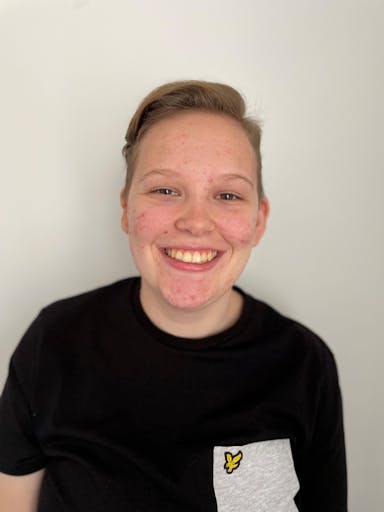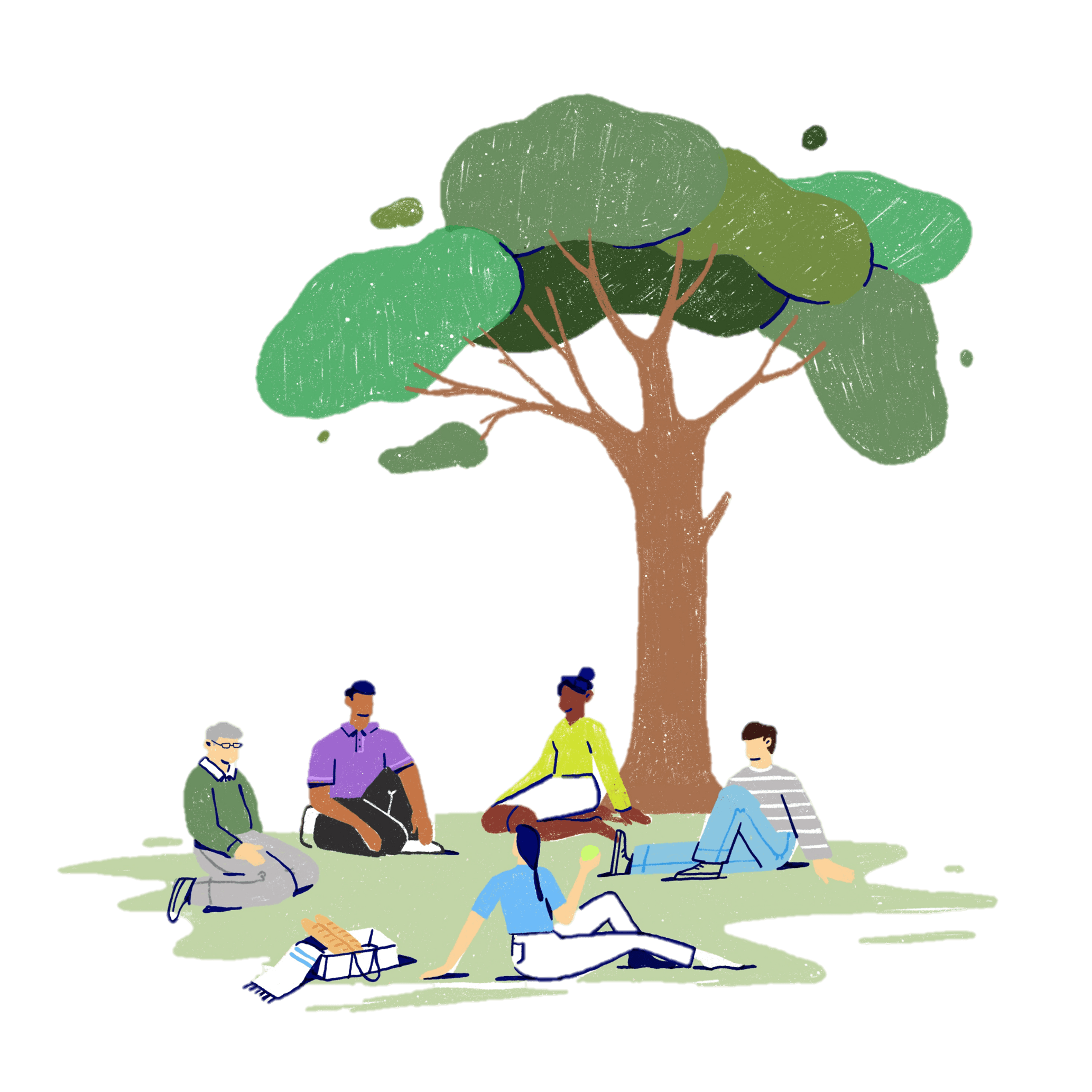An important message from Good Thinking
We regret to inform you that the Good Thinking service will be closing on 31 January 2026. This has been a difficult decision after eight years of supporting Londoners.
If you’re struggling with your mental health, please visit Every Mind Matters or Hub of Hope, or contact your GP, NHS 111, or the mental health team in your borough. For more information about the closure, read our FAQs.We have created an archive of the Good Thinking website for healthcare professionals.Approved by
LAST REVIEWED 27 August 2024
Supporting young people to influence improvement in mental health care
Shelby Davies leads Partnership for Young London’s Digital Health Ambassador programme. In this blog, they discuss the importance of including young people’s voices in mental health service design and delivery, and how the ambassadors collaborate with Good Thinking to create and improve digital support and resources for young Londoners.
My interest in the health sector began when I joined the Great Ormond Street Hospital Young People’s Forum to have a voice in practice and policy affecting the hospital and my care. My involvement with Partnership for Young London (PYL) started when they held a session on the importance of digital services and their accessibility for young people. After this session, I signed up to be a Digital Health Ambassador (DHA) with Partnership for Young London and I now run the DHA programme.
The lens through which young people experience accessing and using health services offers us rich insight into what works, and what could be done better in mental health service design and delivery. When young people are supported to lead the way in influencing improvement, magical moments are created! Young People grow in confidence as their voices are heard and valued, and experts and medical professionals are often energised by the diverse and rich experiences of young people that offer challenge and moments of connection.
Putting young people at the heart of services allows us to use their voice and experience to build in improvements. Young people need different things at different times. Allowing young people’s voices to impact policy and practice allows for a diverse service that can be tailored to the different needs of individuals. Adaptability is key, as services constantly need to change and update what they do in line with the feedback they receive.
How do Good Thinking and Partnership for Young London collaborate?
Good Thinking is constantly looking to improve and add to the website, especially in the young people’s section. To support this, we organise feedback sessions with Londoners aged 15-25, focused on specific sections of the platform and resources. The Digital Health Ambassadors (DHAs) then have a chance to test a section of the website and provide feedback. PYL and Good Thinking also collaborate on creating social media posts and campaigns that benefit young people.
Past collaboration projects
The DHAs created a calendar of awareness days throughout the year for issues that affect young people. We use the calendar to collaborate with various stakeholders and influencers to create campaigns and content to reach young Londoners through social media platforms such as Instagram, TikTok and Twitter. During Stress Awareness Week 2022 we ran an Instagram livestream with influencer, Mr Moneyjar about how to balance and save money. One of the bigger campaigns we ran was a collaboration with the Young Gamers and Gamblers Association on Safer Internet Day 2022, looking at the positives and negatives of gaming and the community it can create.
Co-production is key
Young people also play an important part in creating Good Thinking resources. The Children and young people’s 5 ways to wellbeing project involved working closely with the DHAs and specifically targeting an audience of 12–18-year-olds in Haringey, Southwark, Newham & Islington. Groups of young people worked on the resource and fed back on how they improve their own mental health in line with their interests and lifestyle (e.g. sport, media, faith and community). This project also involved some social media content creation in the form of vlogs and TikTok animations for each of the 5 ways.
Amplifying the voices and opinions of young people in mental health
The DHAs also get involved in projects within the wider health field, here are some examples:
- We hold regular workshops and recently held a session with a group of 30 young people to explore how we can work collaboratively to shape services and build the next NHS workforce. Lots of interesting areas of discussion came out of the session in terms of social media usage to promote campaigns to the youth, accessing rights in healthcare, the transition from paediatric to adult services and the variety of jobs on offer within the NHS workforce. We even got the chance to visit the helipad!
- In partnership with the Reading Agency, the DHAs co-produced a large national campaign that created the new Reading Well for teens list. This is a list of books that are free in most local libraries and address different topics that can affect teens. The books from the list were shared amongst the group of ambassadors to be individually rated and commented on for factors such as suitability and appeal to the right age group. We then came together with experts within the reading agency and health fields to discuss everyone’s feedback.
We're looking for young people aged 15-25 to join the Digital Health Ambassador programme - a unique opportunity to shape research and policy at a local and national level.
Apply here >
Meet some of the Digital Health Ambassadors
We asked some of our DHAs why they joined, what have they enjoyed and what skills they have gained from the programme so far:
- Tiana - "I wanted to be a DHA because I know how important it is to have a digital safe space to access help and support, and being a DHA allows me to help others find and utilise that support. So far I have really enjoyed working with Good Thinking and helping them develop their content to reach as many people as possible and provide the best support tools."
- LB - "It is important that we, as care leavers and looked after children, get our point across and have our voices heard, and by doing that, having and progressing a safe space where we can relate in similar ways and respect everyone’s background and how far we have come to get to where we are now. What I have enjoyed is meeting people, creating a bond and getting involved in events to make a positive change within the system, and keeping positive relationships with individuals work-wise and on a friendship level."
- Tanya - "I wanted to be a Digital Health Ambassador as it meant getting myself involved in the discussions around healthcare for the population, specifically vulnerable groups like younger people who aren’t heard as much as the rest! One of my favourite things about my experience is the number of people I have met and engaged with, and the ability to hear so many people’s experiences and how these discussions benefit our systems."
- Imogen - "Mental health is an extremely important topic and issue in today’s society. Many young people like me try to get help or support through technology due to its easy accessibility, so I want to help make sure that people can access this in the most efficient, safe and helpful way possible. I also want to try my best to be a spokesperson for my community (e.g. Southwest London and LGBTQ teens) and my generation. One of my favourite aspects of being a DHA so far is the feeling of acceptance there is of others’ opinions in the genuine motivation organisations have to develop and listen in order to help others."















